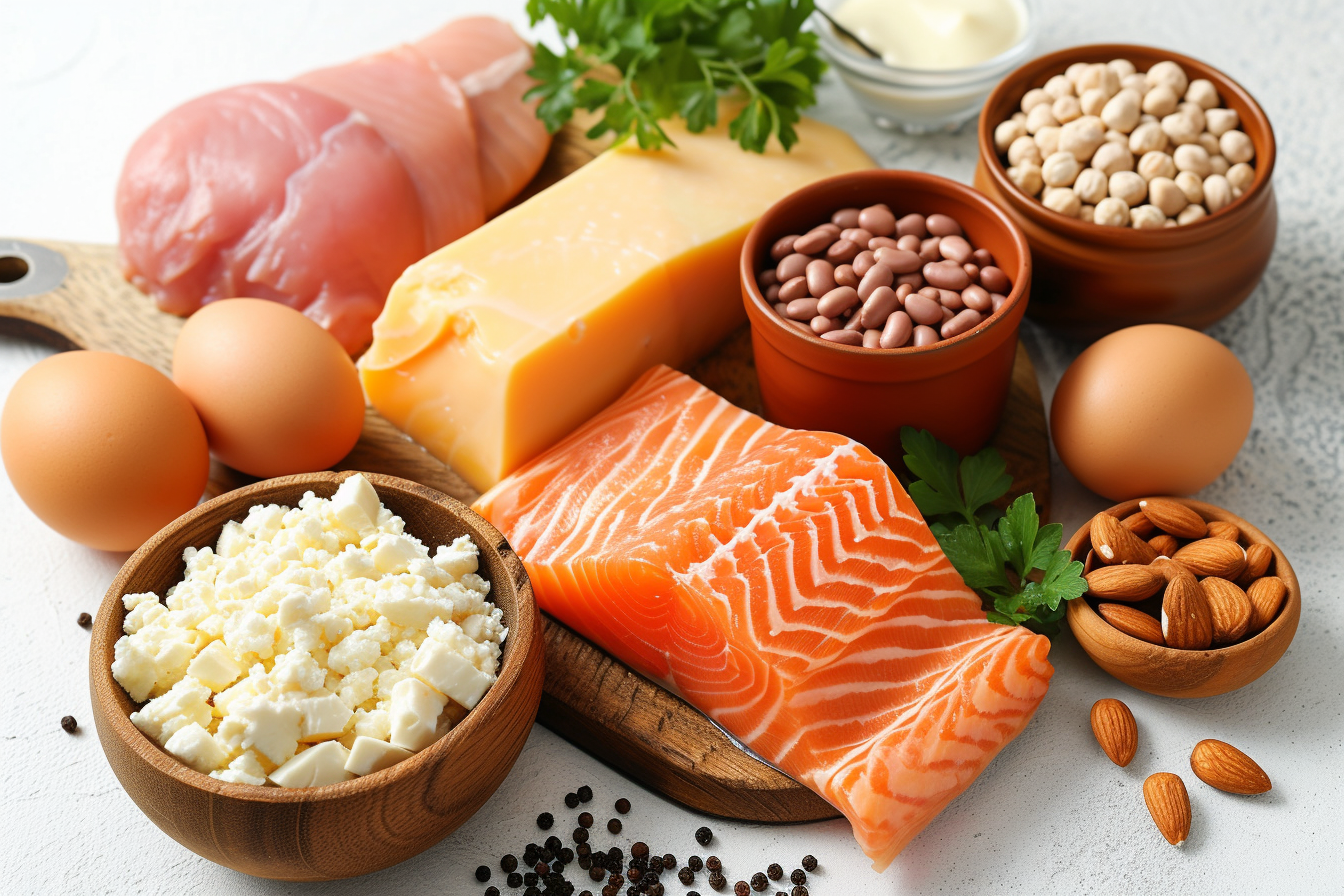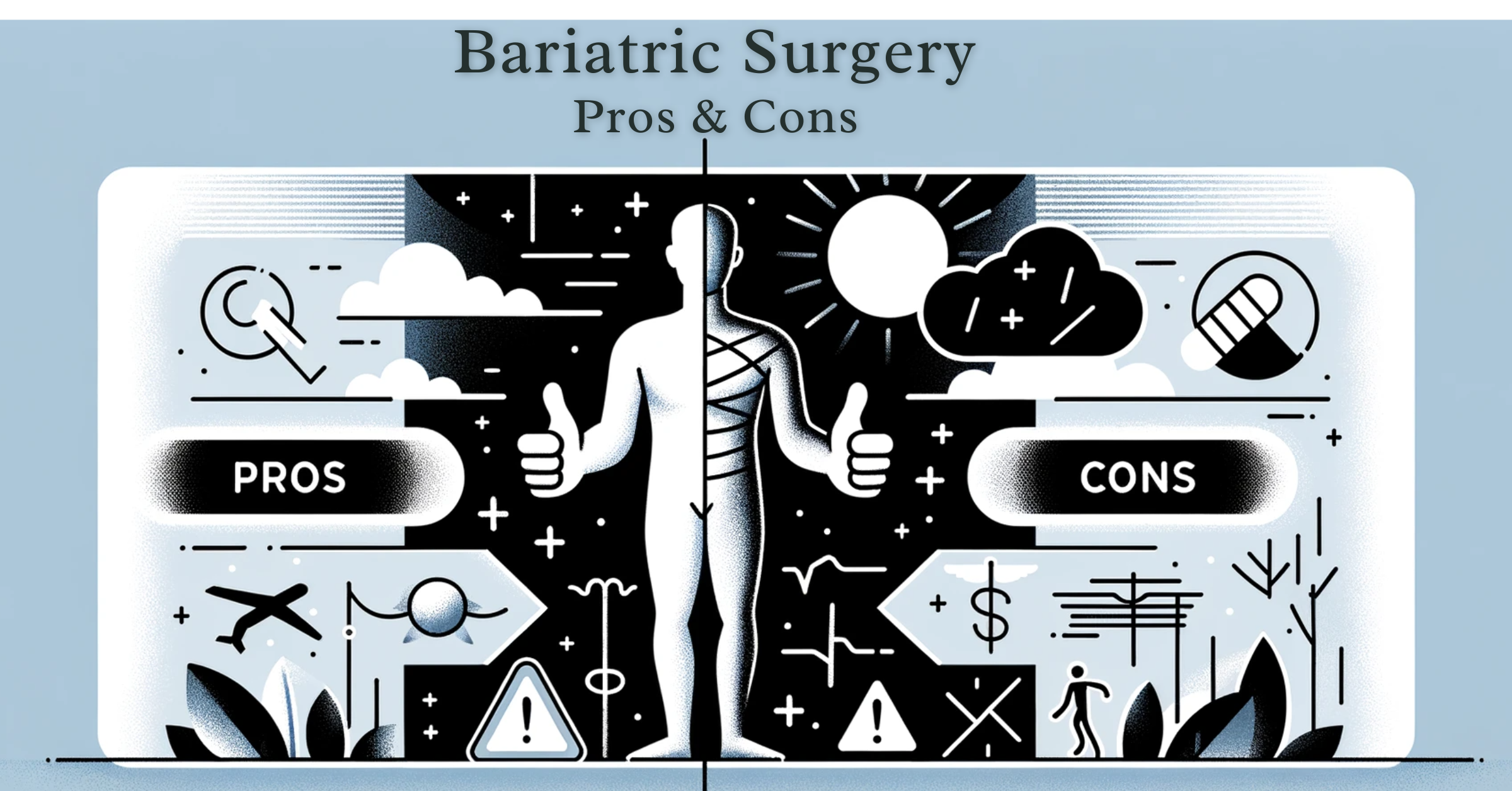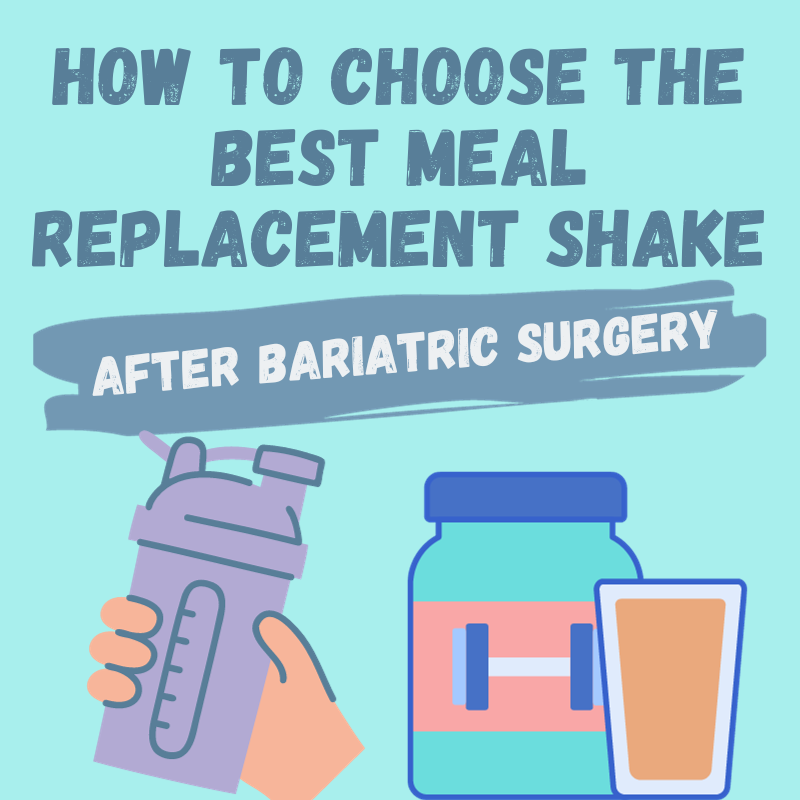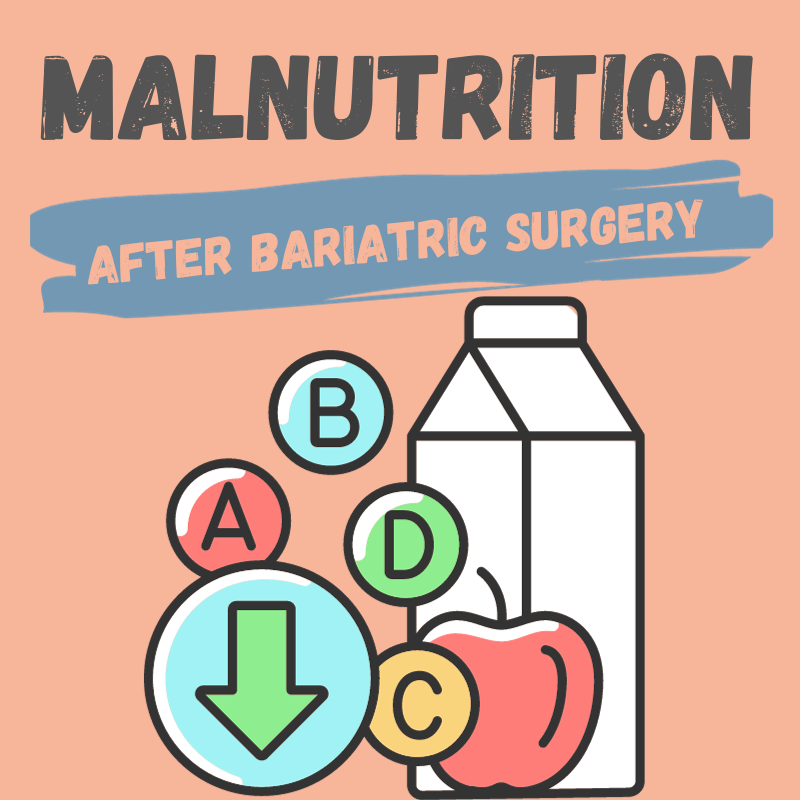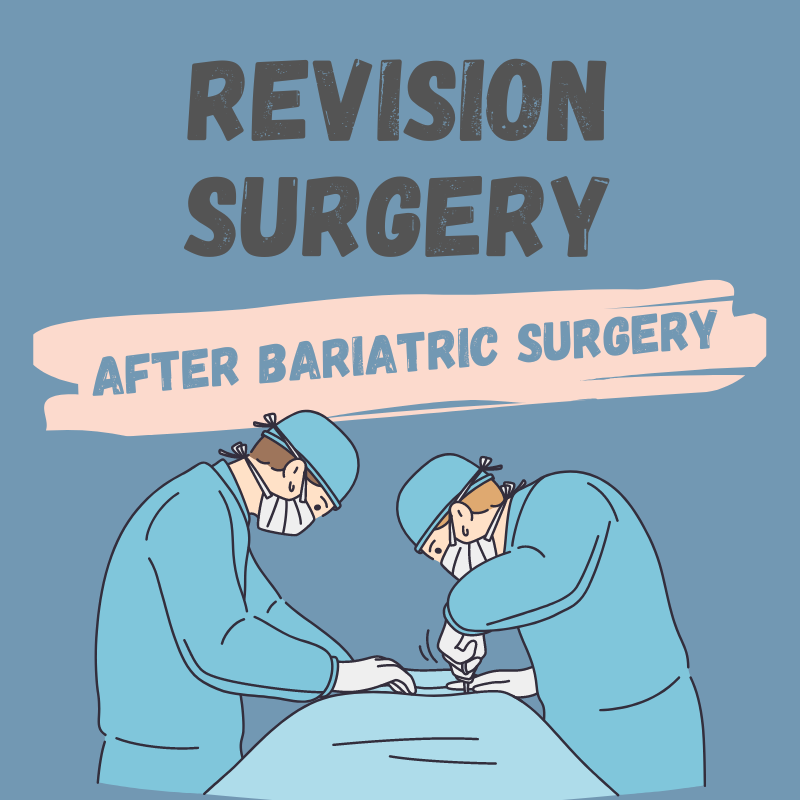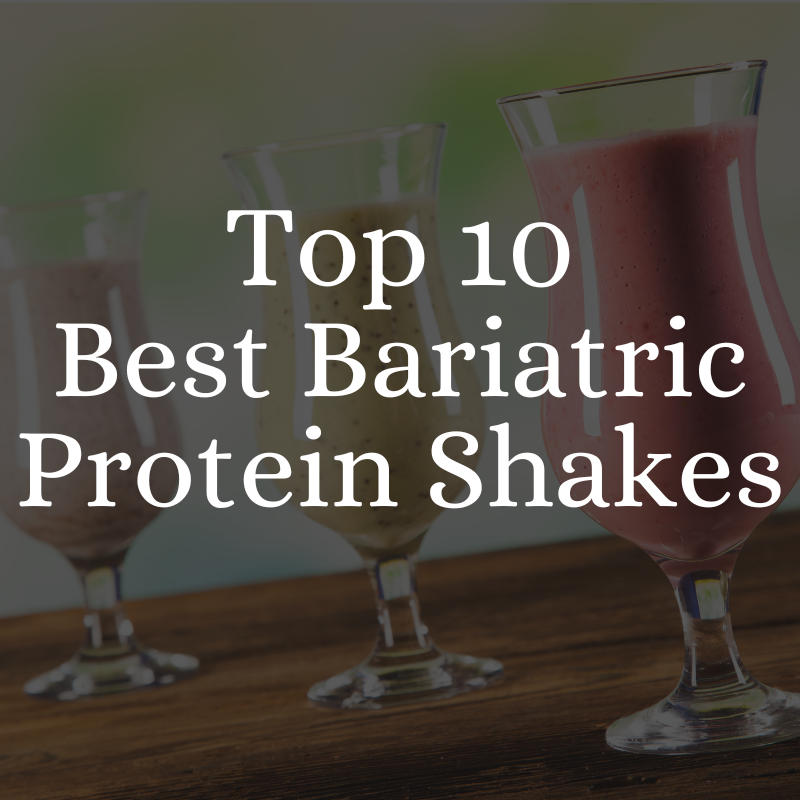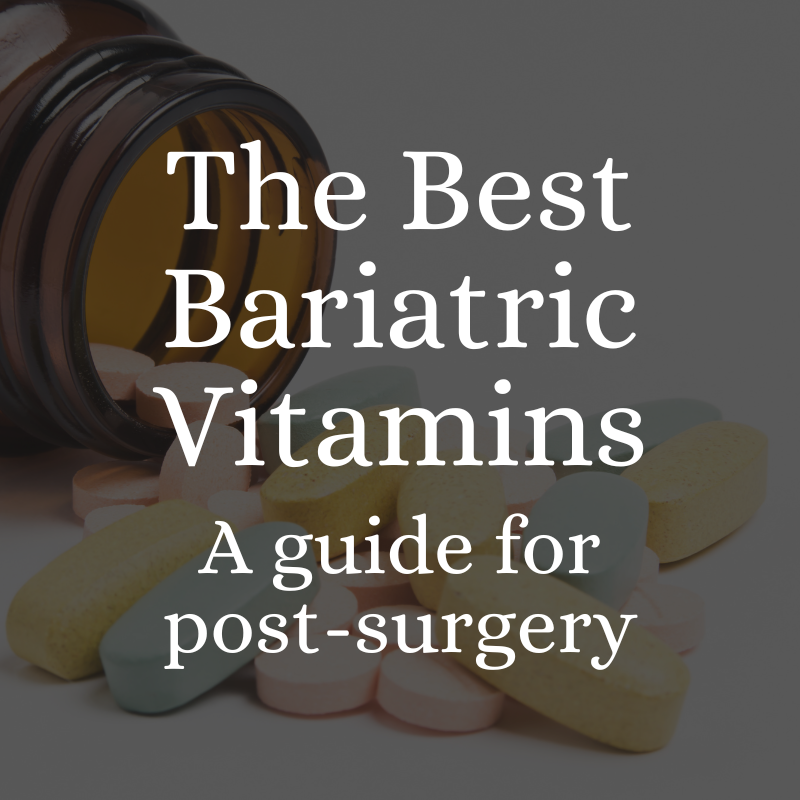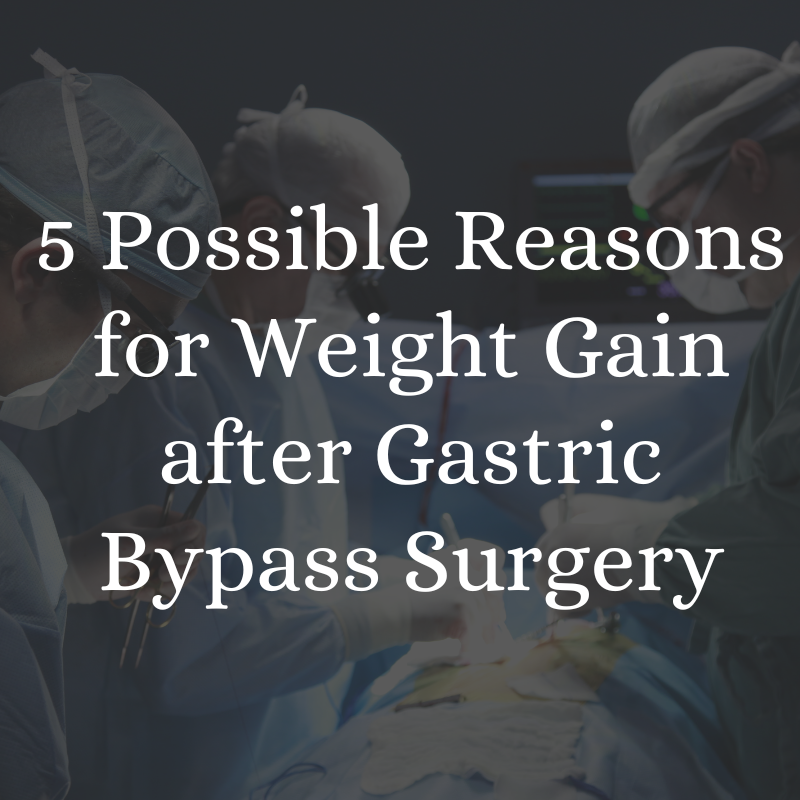Your cart is empty
5 Possible Reasons For Your Weight Gain After Gastric Bypass
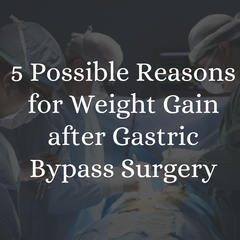
Is your scale showing unexpected numbers after your gastric bypass surgery? Don’t stress! Gaining weight is not that uncommon of a side-effect that many have to deal with after surgery.
Studies reveal that many individuals experience weight regain within 2 to 10 years following the procedure.
But, what’s important here is to understand that gastric surgery does not work like a magic wand. It requires you to make some major lifestyle adjustments and if you fail to comply, it might lead to complications.
New habits, new challenges, and a new mindset are required to maintain what you consider your ideal weight. However, the journey is different for everyone and if you are facing difficulties along the way, we’re here to help and support you every step of the way.
This article explains 5 possible reasons for weight gain after gastric bypass and what measures you can take to keep your weight in check.
5 Possible Reasons For Your Weight Gain After Gastric Bypass Surgery

Problematic Eating Behaviors
Maintaining an unhealthy diet or not adhering to set eating behaviors is one of the leading causes of weight gain after gastric bypass surgery.
While gastric bypass surgery is an effective means of aiding weight loss it does require careful adherence to diet and healthy eating behaviors.
Here is a list of problematic eating behaviors that can cause weight gain after surgery and ways to cope.
- Chaotic Eating
Chaotic eating is when your diet lacks structure and adherence to a formal eating pattern. Most of the time, inconsistent eating habits can come in the way of your weight management efforts.
To address chaotic eating, you need to introduce structure into your diet. You can set certain eating times, and make sure they are spaced throughout the day so that you don’t feel starved. Another factor that goes a long way is to prioritize your meals within the day’s activities so that you can practice portion control.
- Skipping Meals
Skipping meals can also result in weight gain. Going long periods without food consumption can often lead to increased hunger and overeating later in the day.
To not skip your meals, try planning for them in advance. Prepare easy-to-make and nutritious food options and always have a stock of healthy snacks to give you that boost of energy when you need it. Bariatric protein bars, shakes, supplements, and meal replacements can all help with avoiding the extended gaps between meals.
- Poor Food Choices
No matter how tempting it gets, it is always best to avoid eating highly processed foods, especially fast foods. Maintaining a nutritionally balanced diet is the key to supporting healthy weight management.
Consider healthier bariatric food options, the more organic the better. Also, ensure that you are involved in the preparation and selection of your meals so that you can make better dietary choices and adhere to long-term weight management.
- Eating at Night
Night eating involves a substantial calorie intake after you have had your dinner.
To prevent eating at nighttime, take adequate and evenly spaced food throughout the day. It will help you distribute calorie intake more evenly and discourage the consumption of large amounts of food during the late hours of the night.
- Excessive Portion Size
We all know what excessive portion size means - overeating beyond the points of satisfaction. It often leads to discomfort and excessive calorie intake, automatically taking a toll on your weight.
To address excessive portion size, you should try taking smaller portions. You can increase the frequency of your meal and snack intake as that is healthier than eating large portion sizes at sporadic intervals.
- Alcohol Intake
After your surgery, alcohol is rapidly absorbed, which is why it leads to disinhibited eating and a lack of satiety from liquid calories.
You need to limit alcohol consumption and stay aware of its impact. Even individuals who have no prior issues with alcohol should use it with caution post-surgery.
Outlet Dilation
There are also several surgical reasons for weight gain after gastric bypass. Outlet dilation is one such complication that can happen after surgery.
In the case of outlet dilation, the connection made between the small pouch and small intestine during surgery (often referred to as ‘stoma’ or anastomosis’) inflates or widens which can result in larger amounts of food passing through.
A widened stoma will allow for more food to be absorbed by the body and can cause a person to not feel full even after a nutritious meal. This can result in one overeating and gaining weight over time - resulting in your gastric bypass surgery being ineffective.
Pouch Dilation
The entire purpose of a gastric bypass surgery is to reduce the stomach size which allows for you to feel full even when eating small portions. This helps you automatically eat less which makes it easier to lose weight.
However, in the case of pouch dilation, the small stomach pouch created during surgery can inflate, dilate, or stretch over time which means you now have to eat more food to feel full.
Similar to outlet dilation, pouch dilation can also make your gastric bypass surgery ineffective, and to fix these complications you might have to either reset your gastric pouch or undergo another surgery where the pouch or stoma is retightened.
Gastro-gastric Fistula
Gastrogastric fistula is a rare complication that can occur in patients who have undergone an open gastric bypass surgery rather than a laparoscopic bypass surgery.
In some cases, post-surgery, the newly created smaller stomach pouch still finds itself connected via an abnormal passageway to the larger stomach pouch that had been bypassed during surgery. This means that the food being consumed isn’t just filling up the small stomach pouch but rather flowing through both stomachs.
This, as one would imagine, can cause significant issues. Since the food isn’t flowing through the intended digestion route it can cause abdominal pain, reflux, vomiting, and general discomfort. It can also result in weight gain and result in your gastric bypass surgery being ineffective.
To fix the issue, surgical treatment is required.
Anxiety, Stress, and Depression
Psychological factors can also contribute to weight gain after gastric bypass. If you have opted for a gastric bypass surgery you are concerned about your weight and are looking for ways to make it easier for you to keep that weight in check.
So while a gastric bypass surgery can be a transformative step towards a healthier life it doesn’t mean that it will instantly offer results.
To continue losing weight you will have to stay disciplined and focused on your weight loss efforts.
However, the fight against obesity is never easy and it can take a mental toll on patients. Anxiety, depression, and extreme stress can all cause you to lose that motivation for weight loss, and revert to your old eating behaviors, resulting in one gaining weight and the surgery being ineffective.

Read More: Top 10 Best Bariatric Protein Shakes
Top Tips to Prevent Weight Gain After Gastric Bypass
Regular Physical Activity
If you engage in regular physical activity, it will help you maintain your weight, be active, and stay healthy.
Exercising regularly does not only burn calories but improves your overall health and physical capabilities. Find out what exercises are suitable for your body type post-surgery and make it a point to incorporate at least a half-hour workout in your daily routine.
Portion Control
The entire point of a gastric bypass surgery is to reduce your stomach size which in turn helps you with portion control. A smaller stomach helps you feel full even when eating smaller portions which should help with weight management and overeating.
However, this isn’t always the case. Eating high-sugar and high-fat foods even in small portions can derail your weight loss efforts.
Regular Weight Monitoring
Regularly monitor your weight to detect any early signs of weight gain and take proactive steps toward addressing them. While daily fluctuations are normal, focus on the overall trend, for example, your weekly or monthly average weight. If you consistently notice an increase, it might be time to revisit your diet plans and exercise habits.
Food and Exercise Journal
This tip is my personal favorite. Keeping a food and exercise journal can help in your weight management journey. It will help in identifying patterns and areas that may need improvement, allowing for better tracking of progress and potential adjustments.
Frequently Asked Questions
Q) Will I be gaining weight 3 years after my gastric bypass?
Weight gain can occur at any time. However, it is particularly common during the initial two years of surgery. This period is important as the body is still adapting to the surgical alterations. To effectively manage and prevent weight regain, it is important to maintain a healthy lifestyle.
Q) Can medication affect weight gain after gastric bypass?
Yes, some medications might hurt your weight loss journey post-surgery. The most common medications include mood stabilizers, antidepressants, and hormonal medications. Before starting any of those, consult with your healthcare professional.
Bariatric Food Source - Your One-Stop-Shop For High-Quality Bariatric Food Products!
If you have recently undergone bariatric bypass surgery but are having issues with losing weight or maintaining a healthy diet we at Bariatric Food Source are here to help!
Our specialized bariatric food store consists of over 200 bariatric food products that are carefully curated to provide you with a nutritionally balanced diet that promotes healthier eating behavior and weight management.
For more information visit our website or call us today at (888) 344-4547 for exclusive deals and discounts!
Writer: Allison Allison, a certified nutritionist and research author, brings over 15 years of experience in the health and weight loss industry. Allison's influence extends through her authorship of multiple health and wellness journals, where she shares her expertise and research on medical weight loss and bariatric medicine. |
Reviewed By: Dr. K. Huffman Dr. Kevin D. Huffman, D.O., is a board-certified bariatric physician renowned for his expertise in treating obesity. With over 10,000 patients and a reputation as a national leader in bariatric medicine, he has trained hundreds of healthcare providers. As the founder of American Bariatric Consultants, Dr. Huffman develops protocols and training materials sought after by medical societies, pharmaceutical companies, patients, and hospitals. |
Bariatric Guides & Information
More Info
Customer Favorites
- Choosing a selection results in a full page refresh.

